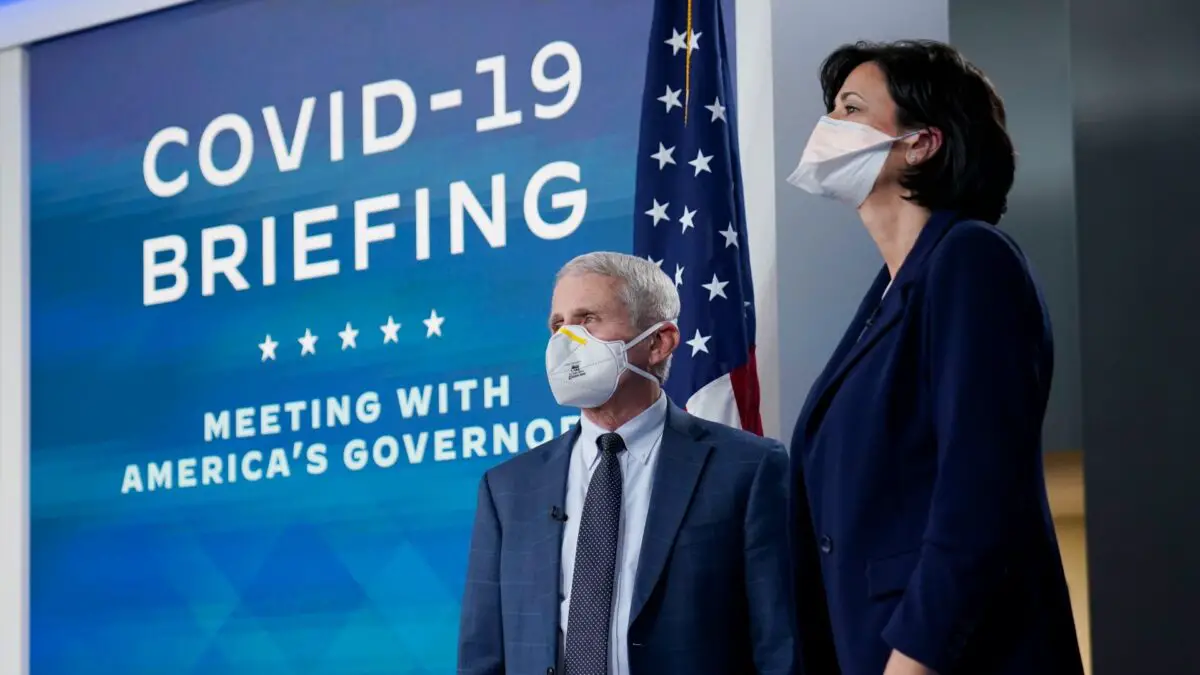An interesting and enlightening report that came out over the weekend from the New York Times provides details concerning Covid vaccine information, specifically related to hospitalizations, that the CDC has decided to keep under wraps.
Specifically, the data in question may concern how many hospitalizations there are among vaccinated individuals versus unvaccinated individuals and what that may mean for vaccine efficacy.
The conventional wisdom, and favorite Joe Biden line, is that this is a “pandemic of the unvaccinated,” yet more and more data points, both collected and anecdotal, indicate that vaccinated individuals are just as likely to contract and spread Covid as unvaccinated individuals.
Much of the information, concerning booster shots in younger age ranges, is being withheld because the CDC claims it may be inaccurate or not “ready for primetime”:
Two full years into the pandemic, the agency leading the country’s response to the public health emergency has published only a tiny fraction of the data it has collected, several people familiar with the data said.
Much of the withheld information could help state and local health officials better target their efforts to bring the virus under control. Detailed, timely data on hospitalizations by age and race would help health officials identify and help the populations at highest risk. Information on hospitalizations and death by age and vaccination status would have helped inform whether healthy adults needed booster shots. And wastewater surveillance across the nation would spot outbreaks and emerging variants early.
Without the booster data for 18- to 49-year-olds, the outside experts whom federal health agencies look to for advice had to rely on numbers from Israel to make their recommendations on the shots.
Kristen Nordlund, a spokeswoman for the C.D.C., said the agency has been slow to release the different streams of data “because basically, at the end of the day, it’s not yet ready for prime time.” She said the agency’s “priority when gathering any data is to ensure that it’s accurate and actionable.”
Really? The CDC is sitting on mountains of inaccurate data it’s choosing not to share because it’s simply not “actionable”? What if it is actionable? Who decides if the information is actionable or not? If the data is inaccurate or bad, why is the CDC collecting it or even holding on to it?
As the report notes, the CDC is incredibly political and controlled by multiple layers of bureaucracy, yet that’s no excuse for why after years of administered vaccine dosages, information is still being withheld:
“The C.D.C. is a political organization as much as it is a public health organization,” said Samuel Scarpino, managing director of pathogen surveillance at the Rockefeller Foundation’s Pandemic Prevention Institute. “The steps that it takes to get something like this released are often well outside of the control of many of the scientists that work at the C.D.C.”
The performance of vaccines and boosters, particularly in younger adults, is among the most glaring omissions in data the C.D.C. has made public.
Just because a government agency is hiding something doesn’t mean it’s hiding something bad. However, given the level of urgency with which the government presses forward demanding everyone receive a Covid vaccination, it would also seem prudent that the same government should be forthcoming with information.
This is the same vein as the FDA asking for 75 years before it can release all the Pfizer vaccine data used during the original approval process, a time frame that was cut down by a judge.
The CDC has been derelict in reporting stats and numbers which could help doctors and the general public understand certain aspects of the pandemic. For example, how many people are hospitalized “with Covid” rather than as a direct result of a Covid infection? Being in the hospital for a broken toe, then testing positive for Covid shouldn’t count as a “Covid hospitalization,” yet up until very recently, it did.
If the CDC is sitting on data that the public deserves to see, it should release it. This includes data that could encourage more vaccinations or discourage them, the people have a right to know what their government knows.
Part of the CDC concern comes from the original messaging which oversold vaccines as a way to abruptly and immediately stop Covid infections. The vaccination drive was framed in a way imploring people to end the pandemic by getting vaccinated. That mantra became gospel to some even though it was never true:
When the Delta variant caused an outbreak in Massachusetts last summer, the fact that three-quarters of those infected were vaccinated led people to mistakenly conclude that the vaccines were powerless against the virus — validating the C.D.C.’s concerns.
But that could have been avoided if the agency had educated the public from the start that as more people are vaccinated, the percentage of vaccinated people who are infected or hospitalized would also rise, public health experts said.
Now that the CDC has undercut its own credibility by mismanaging its own messaging, it fears that releasing more data would only continue to undercut the top-down authoritative message on Covid vaccinations.
The people have a right to know, and the CDC should be more forthcoming with every piece of data it has and trust people to make their own medical decisions.
Donate Now to Support Election Central
- Help defend independent journalism
- Directly support this website and our efforts
